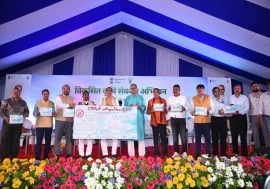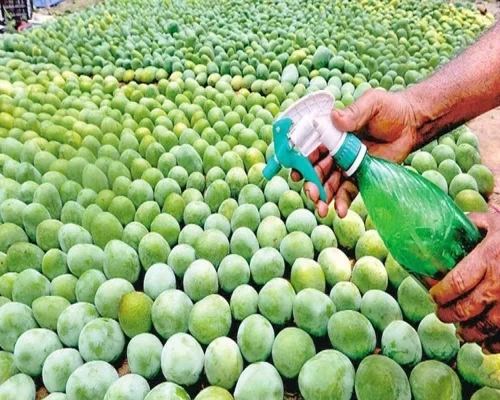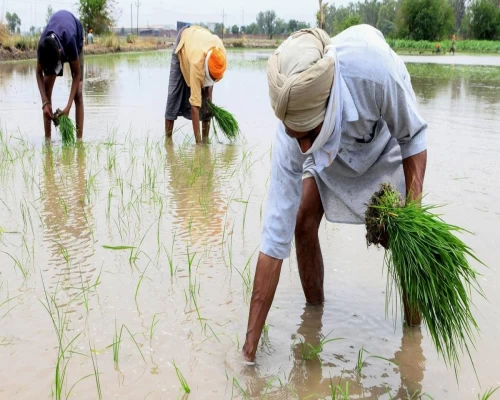
New Delhi: As the world observed World Food Day on October 16, 2024, under the theme "Right to Food for a Better Life and Future," the Ministry of Ayush stated that it is dedicated to supporting the United Nations’ Sustainable Development Goal 2 (SDG-2), which aims to eradicate hunger and enhance food security. The Ministry said that it is committed to promoting a healthier, disease-free, and sustainable world through the principles of Ayurveda Aahar.
The Union Minister of State for Ayush, Pratap Rao Jhadhav, marked the significance of World Food Day by stating, “On World Food Day, let's remember that Ayurveda's approach to food goes beyond mere sustenance - it aims to nourish the body, bring peace to the mind, and satisfy the soul, reconnecting us to our roots and guiding us to live in harmony with nature. Let us acknowledge the significance of Ayurveda Aahar, which sees food as more than just a source of energy, but as a crucial element in maintaining a balanced body and mind. This day serves as a reminder of how a proper diet can impact not only personal health but also global food security and sustainable development, in alignment with Ayurvedic principles.”
Ayurveda offers cost-effective, sustainable, and nutritious dietary solutions to combat malnutrition and address food sustainability issues affecting many regions globally. Ayurvedic principles view food as the best medicine, advising consumers to partake in the right food in the right manner to promote a healthy life. Underlining the developments surrounding Ayurveda Aahar, Vaidya Rajesh Kotecha, Secretary of the Ministry of Ayush, noted that the Food Safety and Standards Authority of India (FSSAI) notified Ayurveda Aahar regulations through a Gazette notification in 2021. This development has sparked renewed interest from various stakeholders, including the industry, in the concept of Ayurveda Aahar, revolutionising the sector.
The Indian Thali has gained global recognition for its significant impact on nutrition and sustainability, as highlighted by the WWF Living Planet Report. This traditional plant-based diet, centred on grains, pulses, lentils, and vegetables, has been credited with reducing natural resource usage and greenhouse gas emissions compared to animal-based diets. According to the report, if the world adopts India’s consumption patterns, only 0.84 of the Earth will be needed by 2050 to sustain global food production.
Expanding on the strength and potential of Ayurveda Aahar, Anupam Srivastava from the National Institute of Ayurveda (NIA) in Jaipur stated that the Ministry of Ayush’s innovative approach towards Ayurveda Aahar aligns perfectly with Sustainable Development Goal 2 (SDG-2), which focuses on hunger, food security, nutrition, and sustainability.
In line with this principle, the Ministry of Ayush has introduced the "Ayush Dietary Advisory for Kuposhan Mukt Bharat" to enhance nutritional outcomes, especially for children, pregnant women, and lactating mothers. In partnership with the Ministry of Women and Child Development, the Ministry is taking significant strides towards realizing a Nourished India by endorsing an Ayush-based diet and lifestyle. The Ayush Dietary Advisory aims to improve the nutritional well-being of at-risk populations by integrating Ayurvedic dietary principles into daily meals, offering a distinctive and effective approach to combating malnutrition. This aligns with the national mission to eradicate malnutrition and promote the health of future generations.
The Ministry of Ayush highlights how blending traditional wisdom with modern science can provide effective solutions for tackling global hunger and improving health outcomes through continuous efforts.
As we celebrate World Food Day 2024, the Ministry of Ayush reaffirms its commitment to promoting a disease-free world through Ayurveda Aahar, emphasising natural nutrition, prevention, and wellness. By adopting Ayush dietary practices, we can move towards a world where food is a powerful tool for health and longevity. Through collaborative efforts both within India and internationally, the Ministry of Ayush continues to advance its mission of improving nutritional outcomes and creating a brighter, healthier future for all.
This acknowledgment positions India as a leader in sustainable food practices, demonstrating how local traditions can address environmental challenges while promoting overall health.
BI Bureau









 (13)_500_x_400.webp)


